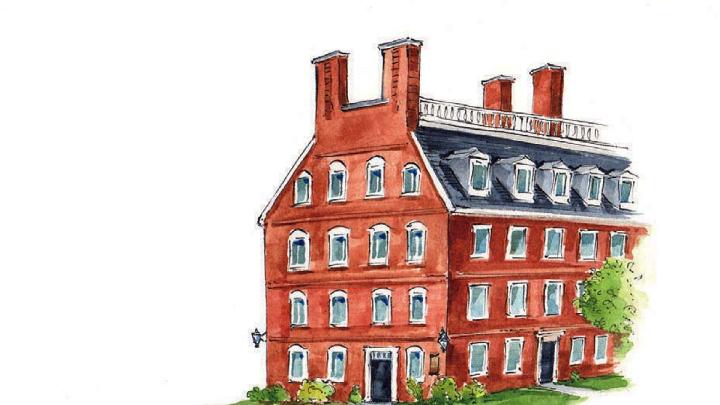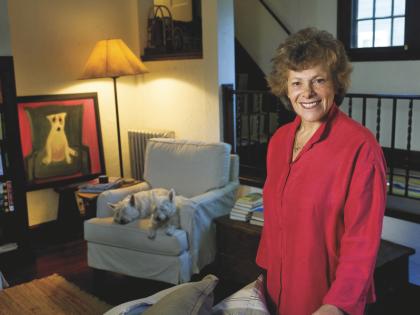Lawrence S. Bacow, a president emeritus again, has advised many institutions on how to pick good leaders. He always begins with intellectual prowess. Character comes second: those who have a deficit rarely make it up later. Third is what he calls the ability to “look over the intellectual horizon”: to suss out important emerging fields. Fourth is the instinct to choose among such options and identify the scholars who can realize them.
All well and good. But how do prospective presidents of a place like this end up on the path that delivers them to Massachusetts Hall? The lives of the three most recent examples suggest an early awareness of one’s interests, and the independence, agency, and determination to pursue them.
Drew Gilpin Faust’s memoir, Necessary Trouble (excerpted in this issue), depicts the confining expectations placed on her as a girl growing up in Virginia. Her mother, who described her own limited education as “finishing school,” felt strongly that her only daughter “needed to learn to be a lady, with the assumptions of decorousness, docility, and social position that destiny prescribed. I was not meant to become a woman”—and certainly not intellectually precocious.
Counseled “not to be so bossy; to defer more to others,” Faust rebelled. Her story of change in 1950s and 1960s America is not unique, but the scale is breathtaking. By the time she got to Bryn Mawr (the most cerebral of the Seven Sisters) in 1964, did a little organizing for the Students for a Democratic Society, and drove to Alabama with her boyfriend the next spring to march in Selma, Faust had left a lot behind. She wasn’t a scholar yet—not by a long shot. But she was set on a trajectory utterly different from the one projected for her in her Shenandoah Valley girlhood.
Larry Bacow arrived at MIT in 1969: not long after Faust got to Bryn Mawr, but after the urban traumas and shattering assassinations of the prior few years. He intended to study math and then law, following his father’s career. He detoured into economics and then headed uptown to earn Harvard M.P.P., J.D., and Ph.D. degrees.
Bacow’s stories portray none of the family tensions that Faust found within hers. His parents’ emigration from pogroms in Europe and the Holocaust are a formative part of his worldview, making what ensued even more poignant. As he explained in his 2019 baccalaureate address: “After I finished my second year of law school…I started a summer job at…a law firm. Now, I had spent my entire life up to that point imagining that I would become a lawyer, just like my father. I thought it was what I wanted to do, and I knew it was what my father and other people expected me to do. One afternoon that summer, I was accounting for my billable hours, filling out a timesheet that broke every hour of my workday into six-minute increments….” That quickly suggested a life “measured out…with coffee spoons”: J. Alfred Prufrock, or worse.
By summer’s end, Bacow continued, “I began to let that idea of myself go, and started figuring out how I really wanted to spend the rest of my life.” His father’s unhappiness notwithstanding, Larry Bacow the academic began coming into view.
Claudine gay’s academic origins, like Bacow’s, proceeded from a demanding undergraduate education (also in economics, at Stanford) to a Harvard Ph.D. There were no antiwar demonstrations when she arrived in 1992, but there had been protests about the lack of faculty diversity. Another child of immigrants (from Haiti), Gay, too, brought job assumptions with her: “College was always the expectation for me,” she has said, with three approved options: “I could be an engineer, a doctor, or a lawyer….!”
But attending Stanford “ignited” her joy in learning that “knowledge is created and not just passed on. And it’s where I found what I wanted to do….” No surprise, “my becoming an academic was not what my parents had in mind….” But they supported her choice, and “my life’s path took shape.”
When their sparks were lit, none of these young learners could discern an academic presidency ahead. But they proceeded toward their new interests in ways that would serve them and their institutions well in the decades to come. If there’s a lesson for students and parents today, it’s to worry less about getting admitted to Harvard, and to think more about what happens once they arrive.








